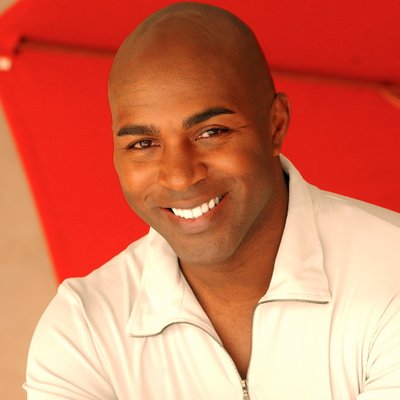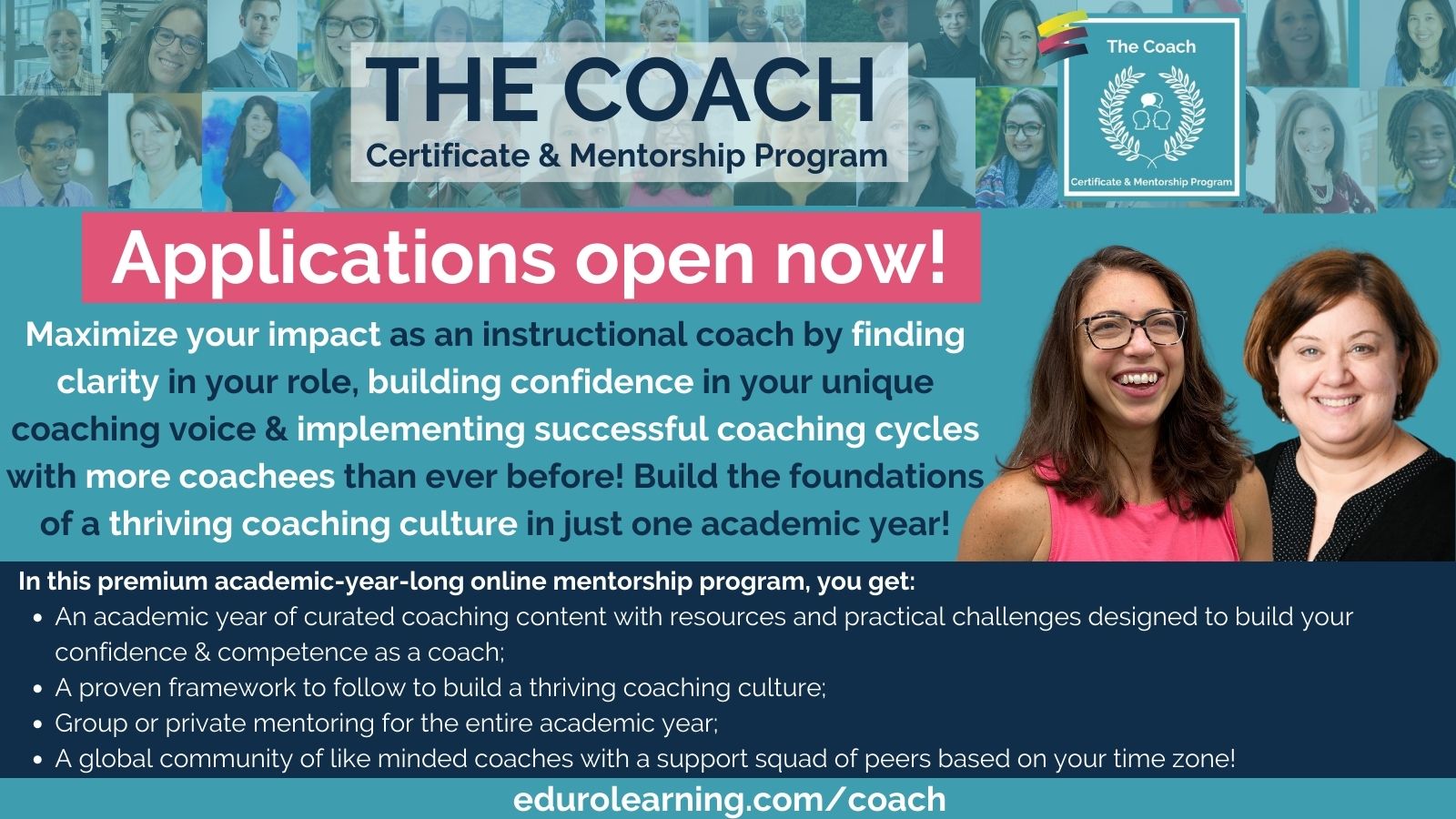This #coachbetter episode features Ken Shelton, who is currently working with schools around the world on technology, equity and inclusion. Ken’s extensive background with many different school communities provides lots of insight for those of us working towards social justice, and in particular through the lens of technology for equity. If you are interested in coaching for social justice and tech equity, this episode is for you!
Subscribe to #coachbetter via your favorite Podcast Player!
Featured Guest

Bonus! Watch the Spotlight Version on YouTube!
Show Notes
Please tell us about your past work as an educator (your teaching experience) to give us an intro to you as an educator.
Most career in LA Unified school district, full-time classroom teacher for 18 years. English & social studies, last 11 years in tech lab. Cautionary tale about leaving the classroom. 18 years of being the only black teacher in the school district. Grow impact & reach by working nationally and internationally giving talks / trainings and workshops, started with connections with Google & Apple, but expanding now. Last 20 years to really hone in on mission, passion, purpose. De-stigmatize mental health aspect & follow passion.
Please tell us about your work now.
Over the last 20 years noticed systemic components of education – not restricted to the US, also advising ministries of ed in other countries. Can be traced to colonialism. Noticing the inequities that exist, lack of access, lack of diversity, lack of a truly inclusive education experience. In your school, what access do students have to narratives that are within the “standard”. Standards tend to highlight perpetuate and celebrate single stories (upper middle-class cisgender white males). If you aren’t in that particular demographic you begin to embody elements of inadequacy yourself. It’s not even until you’re a middle-aged adult to recognize that, go through self-care to accept who you are, love who you are and advocate for yourself.
The more I exposed students to stories that were aligned to their cultural identity as well as those that were not aligned, it made a much more cohesive classroom. Mirrors windows sliding glass doors. Mirror: I should see myself represented in the classroom, authentic representation, not someone telling my story for me. Window: look into other people’s lives. Sliding doors: put in a position when I can step into their world. Those three components are a catalyst for meaningful collaborative environments.
How do you get people to WANT to do this work?
Habits of Mind & Cultural norms
Perception that you’re doing the world, but until you are aware that you have habits of mind that are your bias, you have a myopic view, until you have an outside perspective, you won’t know. it’s safe to assume that you’re not doing it.
In order to fill those gaps, we have to address them through the adults. How much representation do I see of myself around the school? If you know that something you’re doing is causing obvious harm to students, would you still do it?
Until you do a full analysis of yourself and then the curriculum, you’re highly likely representing a myopic view of society.
What narratives and learning experiences are consistent within those standards could easily by design (not by intent) marginalize any students on campus.
Any child that goes to a university campus and needs to find a micro group for self-isolation
Coaches:
In a unique position to be both an observer and a supporter, requires awareness and initiative. I’m going to become an informed observer of interactions between students to catch nuances between students. You can be the extra set of eyes in the classroom.
The big question is: do you want your child to thrive in a multicultural, multi-lingual, multi-national environment or stay within those that you’re most comfortable with. How much more beneficial is it for all of us, when we can engage in and immersed and environments where we can be comfortable in language and action.
If I were to ask every single one of your faculty members how well they know the community that they’re in, what kind of answer would I get?
Acknowledge that there’s a gap, or someone brings awareness and then you acknowledge it.
To be more inclusive, find out who the artists are, what the stories are, where can you find out more about the art
Curriculum team (Math, English, Arts, PSHE, Enhanced Learning & Specialist Coordinator, PYP, and other Dep Head). Every member of staff is required to be on one of those teams. One of our major goals is assessment. How do we better assess in that area?
What’s YOUR level of coaching mastery?
All coaches go through various stages of coaching mastery. Once you identify where you’re at, you can begin to build the skills needed to move to the next stage.
This quiz is based on real-life case studies compiled from years of working with coaches inside The Coach Certificate & Mentorship Program!
When you receive your results, you’ll also get your matching case study from the STRIVE Case Studies to see where you fit in the stages of coaching mastery.
Ready to tackle your challenges and move on to the next level in YOUR coaching practice?

The STRIVE Model of Coaching Mastery quiz will help you identify your level of coaching mastery by matching you with case studies compiled from years of working with coaches inside The Coach Certificate & Mentorship Program so you can easily see where you fit!
When you complete the quiz, you’ll get:
- Your matching case study,
- Specific strengths & challenges aligned to your result;
- Suggested next steps for each stage;
Plus the Case Study Document includes:
- Case studies leveled by coaching mastery;
- A framework to identify essential stages of professional growth & key areas to focus on in your professional learning;
- Alignment with the THRIVE Model for a Successful Coaching Culture;
- Space for you to reflect & prioritize so you can take action immediately!
You’ll go straight to the Quiz, and get the Case Study Document via email.
Show Notes continued…
Lots of our listeners are in international schools, where we know that diversity is a challenge. How can we bring these topics into our conversations on a regular basis?
Life is a moving sidewalk, those that benefit from the status quo will walk with it.
You have to be able to say I’m going to turn around and walk against it. Because I know the direction we’re going is not going to benefit me as an educator, my students while they’re learning, and my students when they graduate and become adults.
How many narratives exist on your campus, who is telling the stories, what books are assigned? What is the demographic of the representations? If it’s only one, there’s the thing to dismantle.
What experiences can you intentionally expose students to intentionally broad their experience of themselves or their world? Never seen a teacher that looks like me.
Difficult but necessary conversations. Go in with a constructive approach. Here are things I see, here are things based on my experience, here are some steps you can take.
Books are key window, but has to be an authentic voice. The more you learn about others, the more you learn about yourself, and back and forth.
Blog posts:
http://kennethshelton.net/blog/14288431
Resource: https://casel.org/
https://self-compassion.org/test-how-self-compassionate-you-are/
Level Up Your Coaching with The Coach!
If you are ready to dive deep into your coaching practice, to help you #coachbetter and build a thriving coaching culture in your school, please join us for our next cohort of The Coach!
Wherever you are in building a coaching culture in your school, The Coach will give you the strategies, skills and tools you need to make coaching a success and will empower you to confidently apply instructional coaching strategies in any situation – from building a coaching program, to having coaching conversations, to being a leader in your school community. We facilitate only one cohort each academic year so we can offer individualized support for each participant.
Coaches of all levels are welcome: you’ll start the program with a self-assessment to determine exactly what the next steps are for you!






Recent Comments